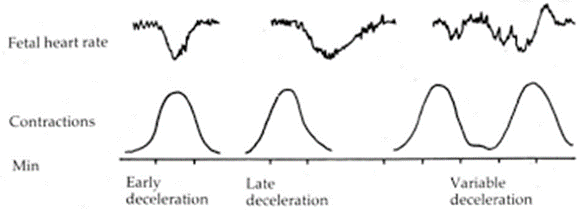Metabolic changes throughout pregnancy that affect glucose and insulin in the mother and the fetus are complicated but its important to understand. Nurses should understand that:
Select one:
Second and third trimesters insulin needs increase because the placenta is fully developed.
Women with insulin-dependent diabetes are prone to hyperglycemia at all times during the first trimester because they are consuming more simple sugar.
Maternal insulin requirements are never modified during pregnancies.
Insulin crosses the placenta to the fetus only in the first trimester, after which the fetus secretes its own.
The Correct Answer is A
a. As the placenta grows and becomes more metabolically active, it produces hormones that increase insulin resistance, leading to an increased need for insulin.
b. Women with insulin-dependent diabetes may be prone to hyperglycemia during pregnancy, but it is not due to consuming more simple sugar.
c. Maternal insulin requirements often increase during pregnancy due to increased insulin resistance.
d. Insulin crosses the placenta throughout pregnancy, and the fetus does not secrete its own insulin until after birth.
Nursing Test Bank
Naxlex Comprehensive Predictor Exams
Related Questions
Correct Answer is D
Explanation
a. This is a common cause of variable decelerations, not early decelerations.
b. This is not a cause of early decelerations.
c. This is a common cause of variable decelerations, not early decelerations.
d. This is the cause of early decelerations and is a normal response to the pressure of the fetal head on the cervix during contractions.

Correct Answer is A
Explanation
a. In this case, the woman is pregnant for the fourth time, so her gravidity is 4.
She has one child born at 39 weeks, another child born at 40 weeks, and one child born at 36.2 weeks. The first two are considered term births, and the last one is considered a preterm birth. Therefore, her term is 1 and her preterm is 2. She has no abortions, so her abortion is 0. She has three living children, so her living children is 3. Hence, her GTPAL is 4-2-1-0-3.
b. This indicates 1 full-term pregnancy, 1 preterm pregnancy, and 3 living child.
c. This would indicate 1 full-term pregnancy, 2 preterm pregnancies, and 3 living children.
d. 4-3-0-0-3: This would indicate 3 full-term pregnancies and 3 living children.
Whether you are a student looking to ace your exams or a practicing nurse seeking to enhance your expertise , our nursing education contents will empower you with the confidence and competence to make a difference in the lives of patients and become a respected leader in the healthcare field.
Visit Naxlex, invest in your future and unlock endless possibilities with our unparalleled nursing education contents today
Report Wrong Answer on the Current Question
Do you disagree with the answer? If yes, what is your expected answer? Explain.
Kindly be descriptive with the issue you are facing.
